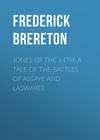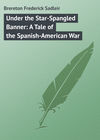Kitabı oku: «King of Ranleigh: A School Story», sayfa 16
CHAPTER XVII
WHO IS THE SCOUNDREL?
It was a saint's day, and Ranleigh made holiday once Chapel was ended. Outside in the playing-fields the shouts and laughter of the boys could be heard distinctly from the Sixth Form room. Occasionally there was a clatter in the tiled corridors over which the feet of so many Ranleighans had passed in the years gone by. Otherwise there was peace and quietness in the school and the time was propitious for discussion. And in the Upper Sixth Form room voices subdued and smooth exchanged the views of various of the prefects. Trendall was there, watching Clive and Susanne with a friendly smile of approval. How different from the glances which he had once cast at them! Bert, cool and dreaming as of yore, apt to indulge on every opportunity in satire, sat upon the corner of the table staring thoughtfully into the fire. Masters stood propped in one corner, nibbling the end of a pencil and glancing first at one of his friends and then at another. By common consent Clive had been voted to the chair.
"We've got to do something, and at once," he said, commencing the proceedings as soon as he had occupied the only chair in the room. "It is up to us to act."
"Hear, hear!" from Masters. He stopped nibbling for a moment. "Hear, hear!" he repeated, and then went rather pink seeing the eyes of all on him.
"And at once," asserted Clive again.
"Without delay, certainly," agreed Bert crisply.
"That is, once we've come to a decision what shall be done. No use acting without a plan," said the wise Susanne, an opinion which Trendall applauded.
"Then, it being agreed that something must be done, and at once, we come to the crux of the situation."
Clive looked at each in turn invitingly. "We want ideas," he went on. "We've reached a crisis here. Has any fellow any plan to put before us?"
There was silence. Masters took to nibbling his pencil violently. It was obvious that he was very much disturbed in his mind. Susanne kicked the worn floor boards impatiently, while Trendall and Bert seemed to have all their attention centred on the fire. But no one accepted Clive's invitation to speak. To tell the truth, no one had so much as an idea. The situation with which Ranleigh was face to face was unique.
"I'll recapitulate events," said Clive, for he was wont in these days to use some terribly long words. The slang so common to his speech in bygone days was now almost forgotten. Indeed, the manners and the ideas of the Old Firm had changed wonderfully and very much for the better.
"There was a fire two weeks ago."
"Hear, hear!" cried Masters, whereat everyone glared at him.
"Glad?" asked Bert, with cutting sharpness. "Perhaps you'd have liked to see us all consumed!"
It was Masters' turn to become scathing.
"A fine thing to suggest," he cried. "You'll say I made the fire," he retorted. "Go on, Clive. Bert's out of sorts this morning. There was a fire. Right. Hear, hear! Let's get along with it. I've a right to say hear, hear! Didn't the fire give us a chance of seeing what Clive's made of, and the sort of chaps we have at Ranleigh?"
He wore an air of triumph. The others present at this meeting applauded loudly.
"It was fine," said Trendall, his eyes sparkling. "The Ranleighan'll have a fine tale to tell. Though I'm one of the prefects I'm bound to admit Ranleigh did well. The Head said so; so did the 'Surrey Liar.'"
It was the name given to a certain county paper which had come out with a fine description of the fire at Ranleigh, and had eulogised the behaviour of the boys. However, this was not getting along with the discussion, and Clive therefore took the matter up again.
"There was a fire; we checked it. It was put out," he said. "Of course, there was an investigation, as a result of which we discovered that paraffin had been thrown about in the big cupboard under the stairs. There were some unconsumed shavings there, as well as a tin which had once held paraffin. That tin came from the boot-room where the beakies work."
"Proving that one of the beakies was responsible for the business," cried Trendall.
"Not at all. The boot-room's open always. You or I could easily enter. Still, it doesn't say that a beaky did not start the fire. This is clear, however, that fire was maliciously set going by someone, and that someone belongs to Ranleigh."
"Either as boy or servant," said Susanne. "Of course, we rule masters out. Such a thing is impossible with any one of them."
"And boys too," suggested Bert. "Whoever heard of a fellow wanting to make a blaze of his school? It's preposterous! So we come to the conclusion that the miscreant is a worker here. In fact, one of the many servants."
There were enquiring glances between the debaters. In the end all turned to stare at their chairman. But Clive's young face was inscrutable. He neither supported nor opposed the statement for which Bert was responsible.
"What's the use of trying to narrow our suspicions down to a single group?" he asked. "On the face of it, I admit that a servant may very well have been responsible for that fire. But then, it might have been anyone. There was a fire. That's good enough for us, and we know that it was purposely set going. We know also that there have been others, and that in every case there is clear evidence that an incendiary was at work. Well, there's the position. You chaps have got to tackle it."
There was, in fact, no need to add to his description. Somewhere about Ranleigh there existed an incendiary. Who was he? Boy, master, or servant?
"Or lunatic," suddenly asked Susanne, as if he imagined that others were following his train of thought. "That's it. Is the fellow who's doing this caddish business merely a lunatic, and so irresponsible?"
"Mighty likely," agreed Masters, coming closer and looking very earnest. "But what if he is? Where's the difference? There's an incendiary all the same, and wondering whether he's boy, master, or servant, and in any case sane or mad, helps us not an atom. Let's stop jawing about things that don't help and get to real business. I'm for watching."
"Watching what?" asked Bert sharply.
"The school, of course. Parading the corridors."
"When? At night?" asked Trendall at once.
"When have the fires broken out? Always at night time. Always between the hours of eleven and one a.m. Then that's the time for watching."
"And you suggest that the prefects do this watching?" asked Clive. "The scheme is one that promises finely. As you say, every fire has occurred in the hours you mention. If the place had been patrolled, then the fellow responsible would have been discovered. So you suggest that the prefects take it turn and turn about to watch? Isn't that it, Masters?"
"Not a bit. I'll ask a question. Has any fellow here any doubt about the others in this room? No? I can see you haven't. You needn't stare at me as if I'd accused you, Bert. I merely asked a straight question. Well then."
"Yes, well then," repeated Susanne encouragingly.
"Can any fellow here say that he's absolutely sure that the culprit isn't to be found somewhere amongst the prefects?"
They shook their heads slowly at him.
"Masters is talking sense," asserted Bert, after a few seconds' silence; whereat the great Masters flushed a beautiful red. It wasn't often that Bert praised. And if he did, there was often enough a sharp sting underneath his compliment. "He's talking sense," repeated Bert, "for once in his life. I'm glad."
"Ah!" gasped Masters. He would gladly have set upon Bert at that instant. But then, everyone knew that Bert was always quizzing. He was grinning even then. Why on earth couldn't he be serious sometimes and forget his quizzing and his satire?
"A fellow can't get along when he's interrupted by an idiot," growled Masters. "Where was I? Oh, I remember. Well, you can't swear that this lunatic isn't to be found amongst the prefects. All the same, I'm open to stand treat to everyone here if a Ranleigh prefect proves to be the fellow. Ranleigh prefects ain't that sort."
He puffed his chest out and flushed red as he spoke. Masters took a tremendous pride in his school and his fellows. "There's not one who'd be such a cad," he declared. "Don't you deny it, Bert."
"Certainly not. I'm in agreement. I'm only smiling at my thoughts. I was just remembering the time when Masters wasn't a prefect. A bigger set of cads and bullys then didn't exist, er – according to Masters. Of course, I agree with what he says now. Ranleigh prefects are fine fellows. Ain't we amongst the numbers?"
There was a general tapping of feet on the floor. The men present were getting impatient, and really it wasn't the time for wit. They glared at Bert.
"Shut up!" commanded Susanne. "Let Masters get along. Well?"
"Well, there you are," said that worthy. "You ain't certain of all the prefects. But you are of the lot here. Supposing we decide to watch. Here are the watchers. We keep the thing to ourselves. Not a word to the others."
"And watch all night. A tough proposition," reflected Trendall. "There are five of us."
"Call it six," said Bert. "There's Hugh. He's not much good; but he'll do."
"Then six," Clive told them. "Two every night. That means one night's patrolling in three. A fellow could manage that easily, and we can always put in a sleep during the day. Then I suggest that we divide ourselves into three parties, each consisting of two. Those two will each take half the school premises, and will meet on their rounds every few minutes. It'll help to keep 'em awake."
"Awake! As if a fellow would care to sleep and so fail in his job," cried Masters indignantly.
"You wait," said Bert. "A chap gets awfully drowsy about midnight, particularly if there's nothing doing. The suggestion Clive has made is good. Get along, Mr. Chairman."
"Then we divide into twos and patrol, each man meeting his fellow every few minutes. Of course, we shall want rubber shoes and a dark lantern apiece."
"And a revolver?" asked Trendall eagerly.
"No. Nothing. If a Ranleigh chap can't use his fists if there's occasion, why – "
"Better chuck the business now," said Susanne. "Clive's right. No weapon is wanted. Once we catch sight of this chap we shall know how to deal with him. So mum's the word. Not a whisper to the other fellows."
"Tell no one, not even the Head," cried Bert. "Secrecy is of the greatest importance. I suppose we start to-night?"
"At once," agreed Clive. "Let's put the six names on strips of paper and draw them from a cap. That'll give us our couples. We can toss to decide who's to take the first patrol."
They carried out this suggestion promptly, and within a little while had the matter settled.
"Susanne and Hugh together," said Clive, reading out the result. "Then Trendall and Bert. Masters and I go together also. Now for first turn. Up with your pennies."
It happened that Bert and Trendall were to be the first to patrol, and it may be imagined that there was a considerable amount of suppressed excitement about those two worthies, as also amongst their companions in the adventure, as the evening approached. But the Old Firm had had an excellent training in smothering their feelings. To look at them that evening as they took prep. in their several form rooms you would have thought that they had no such thing as a secret. In Chapel Bert's face was serene as he went to the lectern to read the lesson. And how well he read! Sitting back in his place amidst the men of the choir, Clive could not help but admire. His memory carried him back to that day now it seemed so long ago when he himself, then small and puny, had for the first time entered this handsome building. He recollected how he had watched Harvey ascend to the lectern, with what awe he had regarded him, and how he had trembled at the thought that some day he might be called upon to carry out the same duty. And here he was, destined to read the second lesson of the evening, cool and calm, nevertheless, admiring, as admire he must, the smooth, even reading of his old friend Bert.
Then they trooped out to the dormitories. There was the customary ten minutes' silence, and then the hum of many tongues wagging. But gradually the sounds died down, till there came the heavy-footed thud of the beaky. Out went the lights. From many a bed came the snores of sleepers. Clive lay with wide-open eyes listening and thinking. He wondered what Trendall and Bert were doing, for it must be remembered that the rise of the Old Firm in the school had resulted in a partial severance. As prefects they were divided, Clive ruling it in One South, his old dormitory.
Ah! he heard someone stirring! A door opened. It was not in One South. Where was it?
"Old B. coming to bed," Clive told himself. "Then it's about eleven. Those two will be slipping downstairs in a few minutes."
Yes, it was nearly eleven. The big clock began to chime the quarters as the door of One South was noiselessly pushed open. Clive lifted his head and looked in that direction. The well-known and popular figure of Mr. Branson entered the dormitory. On tip-toe, for he was ever thoughtful, bearing a lighted candle in one hand, he gently closed the door and slid across to his own room opposite. And in the years that he had been at Ranleigh, how many boys had seen him going to bed? Not many, we trow. Not because of the late hour, for Old B. did not hold with them. But simply for the reason that boys sleep well, while Old B.'s steps were of the lightest, in spite of his burly figure. The door closed after him, the last stroke of eleven sounded. Silence fell upon Ranleigh school and its surroundings. And then Clive's eyelids drooped. Like the other fellows in the dormitory, he fell asleep and forgot for the moment all about the task which he and his friends had set themselves.
"Well? What happened? See anyone? Hear anything?"
The questions were rained upon Trendall and Bert as soon as the Old Firm were gathered on the following morning.
"Not a soul. But Clive was right about a fellow getting drowsy," said Trendall at once. "If it hadn't been for the movement and the need to meet Bert I'd have dropped off on many an occasion. I met him five minutes after the hour of eleven had struck. We went off to bed at two o'clock precisely."
"Then Bert? Well?" asked Clive of that young fellow. Bert grinned. Evidently he had contrived to gather some fun out of the adventure.
"Jolly nearly made an awful ass of myself," he grinned.
"Where's the difficulty?" asked Masters, with unaccustomed satire. "Ain't it pretty usual?"
"Shut up!" cried Clive. "You chaps are always sparring. Now, Bert."
"Masters would have landed us finely in the soup if he'd been there," continued the one addressed. "You see – well, is it necessary to explain why he'd have done the usual? No. Well, then, I started with Trendall, and just ten minutes after twelve heard someone moving."
"Ah! Go on," gasped his listeners.
"Someone moving! Who?" asked Hugh eagerly.
"I'm coming to it," said Bert coolly. "It was somewhere close to the spot where the fire first took place. I crept in that direction."
Clive felt a queer little sensation about his spine. Bert's narratives were always a little uncanny. He could imagine him creeping like a snake towards the point where he had heard someone moving. "Do get on!" he cried impatiently. "You do take such a time to tell what happened."
"And you're always in such a violent hurry. Well, I crept there. I was in the quad, of course, and as all the corridor windows are open I could easily look in. There was a step in the corridor. Some fellow was creeping along. But he wasn't silent altogether. Now and again his boots made quite a noise. I slid along parallel with him."
The faces of the listeners grew eager. They pressed a trifle closer to Bert, wondering what was coming.
"At the corner of the quad, where the corridor turns, the fellow came to a sudden stop," said Bert. "Things looked fishy. I could hear him rummaging in the boot lockers standing there. I wondered whether I ought to open my lamp and take a squint at him. You see, I wasn't at all sure who it might be."
"Of course," agreed Susanne. "You wanted to get some idea. You didn't want this beggar to know that you were there till you were fairly sure what he was up to. You see, we're watching for an incendiary. We ain't out for any other purpose."
"I'd have collared the chap at once," declared Masters, who was nothing if not impetuous.
"Ah, yes, you would," Bert told him, smiling pityingly on him. "That's just my point. Here was a splendid chance for a fellow to make an utter hash of the business and an ass of himself into the bargain. Masters would have collared the beggar. I didn't. That's the difference. You see, it wasn't an incendiary."
"Then who was it? Tell us," demanded Clive.
"Only Raleigh, stinks master," grinned Bert, whereat there was a roar of laughter. Masters even grinned, though he felt really angry with Bert. Then, suddenly remembering the episode of the burglars, he smiled sweetly at him. It would do for next time, he thought. When compliments were flying around again, and there was need for gentle repartee or a stinging retort, he had it ready. Asses indeed! Bert needn't talk after such a business.
"You see," went on Bert, "he'd been out to supper with some people, I suppose. Ain't he rather gone on that Miss Daisy?"
There were nods from the circle. It was a well-known fact that the science master was paying his addresses at a house in the village. Miss Daisy often took part in Ranleigh concerts, and was decidedly popular. So that, if it were any relief to Mr. Raleigh, he had the good wishes of all at the school.
"They're engaged," Trendall told the company. "They'll be married in the summer."
"Then good luck to 'em!" cried Bert. "Well, there he was, and all the fumbling was for a candle. He found it after a while, just when I thought he must have laid his train and splashed the petroleum about in preparation for a fire. In fact, I was within an ace of flashing my lamp on him when there was the scrape of a match. It made me feel quite funny, I can tell you. I thought he must be about to start the fire. And then, when the flame burned up I saw Raleigh's features plainly. He lit his candle, stamped on the match, and went up the stairs to his room whistling quietly. There, you've got my report. I was getting a bit sick of watching when the time came along to give up. Masters, just you take warning by what happened. It's lucky we're not going to take revolvers. You'd have shot poor Raleigh at once, and then Miss Daisy'd have been a widow before she was married."
Bert was perfectly right in repeating the warning, and perhaps it was stupid of Masters to listen to it so unkindly. But then, had he been impetuous, Mr. Raleigh would have become aware of the watching, and, no doubt, every one of the masters as a consequence. However, no mischief had been done, and the secrecy so important to the success of the business was still maintained. That second night Susanne and Hugh took their posts in the corridor, prepared to watch the security of Ranleigh. Nor had they much to report when again the Old Firm was assembled to hear them.
"But it's a bit of a joke, all the same," laughed Susanne. "Wonder what the masters would say if they knew how we were watching? One generally supposes them to be abed at a respectable hour. But they ain't always. It was Raleigh's turn last time. Hugh and I saw two of them creep in between twelve and one while we were watching. Who knows? Perhaps Clive and Masters'll have the pleasure of welcoming the return of the Head from a supper party."
That made them grin. Bert jogged Masters' elbow. "What a lark it'd be!" he said. "Of course, you'd collar him. My word! The scene would be worth watching."
Perhaps it was as well that the members of the Old Firm saw every atom of fun that was going, for the task they had set themselves was destined to prove monotonous. After all, once the novelty of patrolling a huge place wears off, it has few attractions. Then, too, a cosy bed pulls hard after a long day's exercise. A whole fortnight passed, in fact, without anything unusual happening.
"Someone's twigged what we're doing, eh?" asked Susanne.
"No," said Clive. "I'm certain. But whoever set those fires going is too canny to be caught easily. They say that lunatics are awfully artful. This chap's stopped for a while. We've just got to be patient."
And so for a few more days they continued watching, shadowing many a late-returning master. It was almost three weeks from the date of the commencement of this duty that Clive heard sounds that roused his strong suspicions. Someone was moving in the corridor, someone who had not entered the school through the front door as had been the case with masters. A figure glided past him as silently as a ghost. This was something entirely different from what he had experienced in the whole course of his watching.









